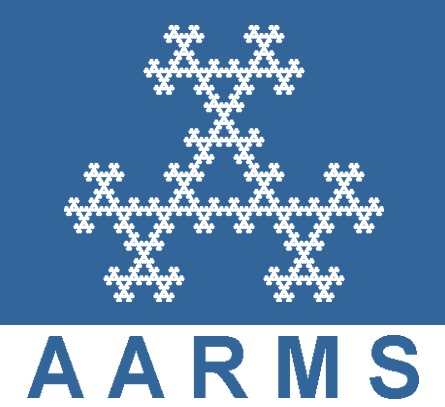Réunion d'été SMC 2015
Université du Prince Edward Island, 5 - 8 juin 2015
Session de présentations par affiches pour étudiants - AARMS-SMC
Org: Muhammad Ali Khan (Calgary)
[PDF]
Org: Muhammad Ali Khan (Calgary)
[PDF]
- SAYER ALHARBI, University of New Brunswick
Fourth-Order-Accurate Finite Difference Scheme with Non-uniform Grid in von Mises Coordinates [PDF]
-
In this work, we develop and test a standard, five-point, fourth-order-accurate forward finite difference scheme for the boundary vorticity using uniform and non-uniform grids. The scheme is suitable for use when coordinate transformation is employed, and is tested in the computation of corner vorticity in the case of viscous fluid flow through a two-dimensional curvilinear channel that has been mapped onto a rectangular computational domain using von Mises coordinates.
- SALEH ALZAHRANI, University of New Brunswick ( Saint John )
MATHEMATICAL MODELLING OF DUSTY GAS FLOW THROUGH ISOTROPIC POROUS MEDIA WITH FORCHHEIMER EFFECTS [PDF]
-
In this work, dusty gas flow through isotropic porous media is considered. The equations governing dusty gas flow through free space are intrinsically averaged in order to derive a comprehensive model that describes flow of a dusty gas through porous media. The developed model has features that distinguish it from other models available in the literature. These include its capability of describing the more general time-dependent flow of a non-uniform number density mixture through a variable porosity medium, while taking into account the porous microstructure and both the Darcy resistance and the Forchheimer micro-inertial effects.
- CHRISTOPHER VAN BOMMEL, University of Victoria
Mutually Orthogonal Latin Squares with Large Holes [PDF]
-
Euler's 36 Officers Problem looks for orthogonal Latin squares of order 6. Such squares do not exist; however, a pair of incomplete orthogonal Latin squares of order 6 does exist. Such squares result if we allow a common $2 \times 2$ empty subarray of each square. We then avoid using a common two symbols in any row or column with an empty cell and make a natural extension to orthogonality. In general, this definition of incomplete mutually orthogonal Latin squares further extends to any order $v$, any hole size $n$, and any number of squares $t$, denoted $t \mathit{-} IMOLS(v; n)$. It is a straightforward observation that $v \ge (t + 1) n$ in order for such an object to exist. While such sets of squares have been previously explored for small values of $t$, we demonstrate an asymptotic result for the existence of $t \mathit{-} IMOLS(v; n)$ for general $t$ requiring large holes, which we develop from our results on incomplete pairwise balanced designs.







